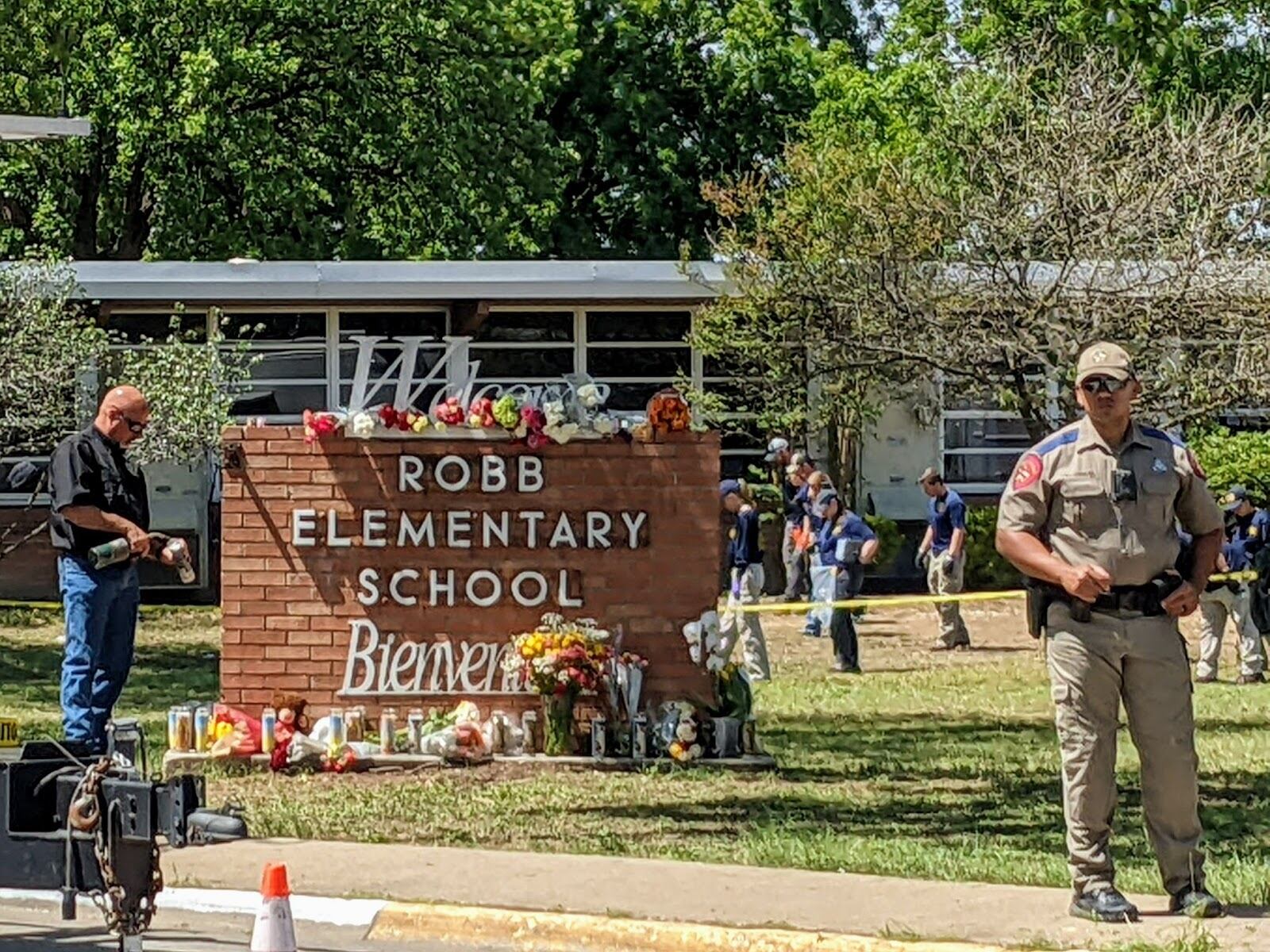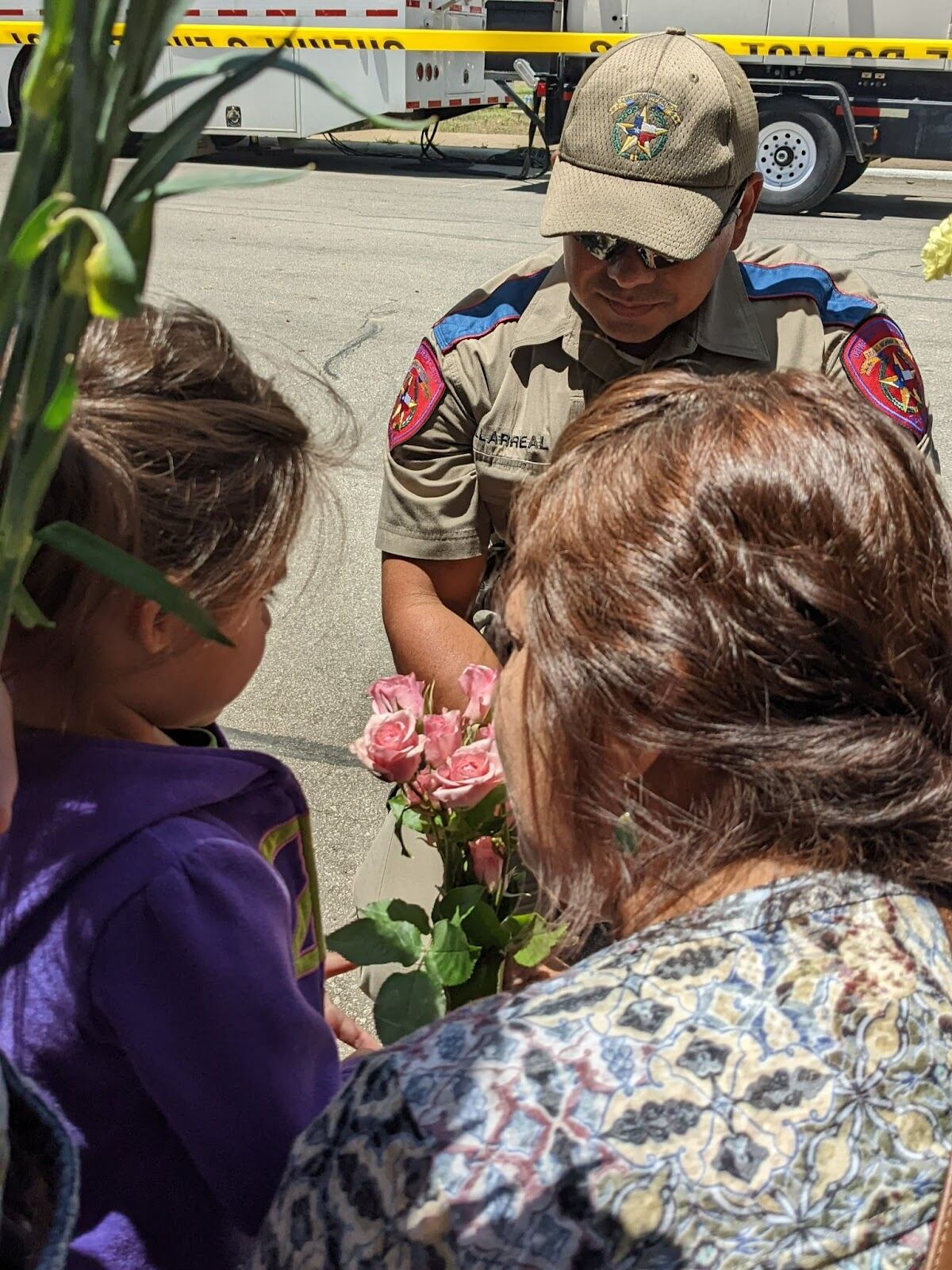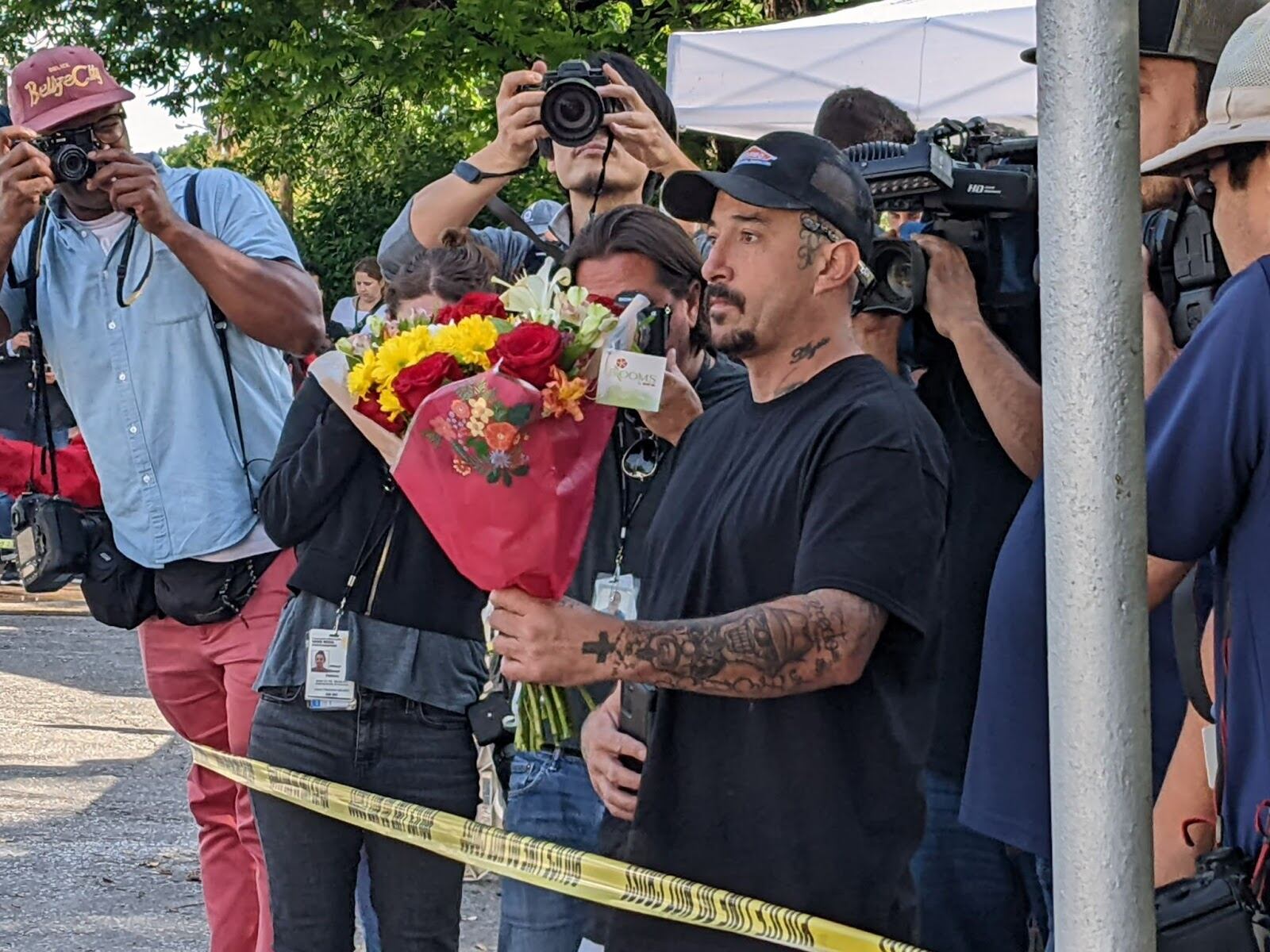Reporter's Notebook
There is this moment of trepidation for every journalist when news breaks of a school shooting. Minds race with unanswered questions: “How big will this be?” “Who was the target?” “How will we cover this differently?” Most newsrooms have extensive experience covering mass shootings, especially those taking place at schools. Since the 1999 shooting at Columbine High School in Littleton, Colo., gun-based violence in schools has become so routine that rare is the incident that grips national attention.
Of course, there are incidents that stand out and are so well-known the names stand alone: Sandy Hook, Parkland, Virginia Tech. Now, we will add another: Uvalde.
The small town of Uvalde, Tex., is between San Antonio and the U.S.-Mexico border; a city where everyone knows your name. One woman who has lived in front of Robb Elementary School joked about having to schedule extra time for the grocery store because it's such a social event.
Now, this close-knit community has been touched by the senseless violence that feels all too common. A shooter entered the school and killed 19 children and two adults.
That's nearly two dozen families who will wear a gapping scar and a community where everyone is affected in some way.
One resident, Adolfo Hernandez, summed up the connection they all share: "I have no words to describe it. I went to school here. Things like that don’t happen in this town."
"My nephew was in the school. He saw his teacher get shot," Hernandez continued. "He saw his friend get shot. It's just terrible."

Law enforcement swarmed the campus on Wednesday, one day after the shooting, as people stopped by with flowers, candles, balloons and stuffed animals to build a tribute on the school sign.
One three-year-old girl visiting with her family handed pink carnations to a police officer as he kneeled to pray with her.

The woman who lives across from the school explained the moment of terror she felt when she heard sirens racing toward her neighborhood Tuesday. She woke up Wednesday and went to work, striving for normalcy at a time when she could not drive away from her home due to a police presence.
"We feel like there's a black cloud over this town," Hernandez explained. "It's so dead, it's so quiet. You can see everybody's faces; something's very wrong."
After more than a decade of covering mass shootings, I am struck by the resilience of communities to rebuild after unbelievable tragedy. I am also struck by the numbness. The numbness we must maintain to tell the stories of the victims, explain the crimes of the shooter. The numbness that comes from yet another murder in yet another American community. The numbness that strikes the community as it finds itself yet another startling statistic.

But this time, it also struck me differently. In 2012 when I covered the shooting at Sandy Hook Elementary School in Newtown, Conn., I was devastated in the way that all people are haunted by the deaths of young children.
In 2022, nearly ten years later, I share an extra layer of horror: my children are 7 and 4. I left on a plane hours after the news broke, knowing my oldest child would take the school bus to his elementary school the next morning while I stood outside of a school half a country away, sharing the devastation this community faces.
It is a strange juxtaposition to grieve with a community while remaining separate and impartial. I feel the pain of these parents acutely, but I compartmentalize to bring the facts, to highlight their stories rather than burdening them with mine.
I am navigating this new space in good company. I know millions of other elementary school parents are gutted along with the Uvalde families. I also know we all hug our children a little harder, knowing that we were lucky, this one time.
Adolfo Hernandez is himself a father. He knows that pain. He takes solace in knowing his nephew is doing well so far.
"He's good, but what he saw, how do you come back from that?" Hernandez asked. "For him being ten years old, I can't even imagine."
He trusts his family will be resilient. Just like Uvalde.
"If you look at the side of the school it says 'Together we rise.' And I believe and I know together we are gonna rise," Hernandez said. "We’re gonna look back at this and remember those angels. They were always angels. They just gained their wings."



